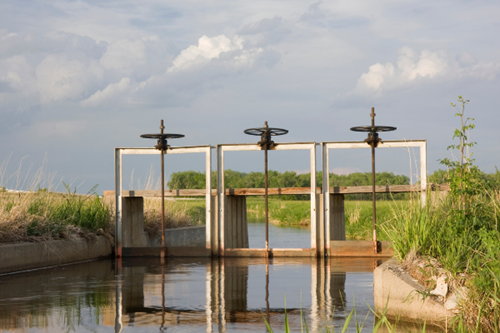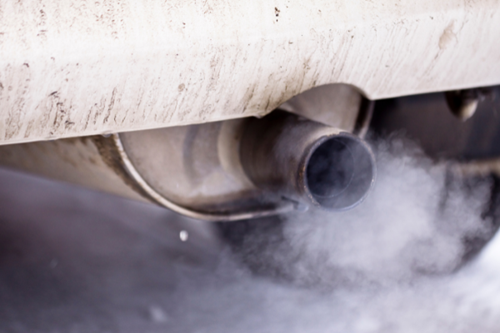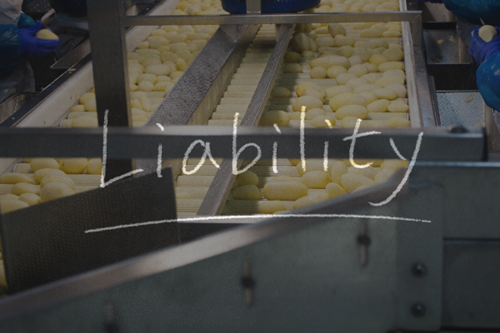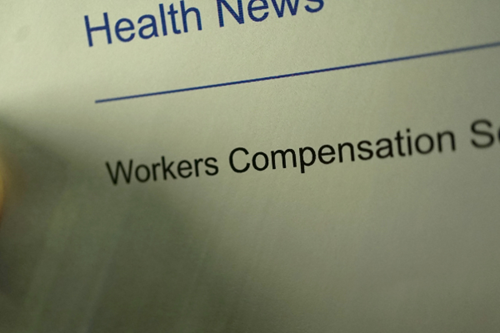Land Exchange Bills Introduced
 BOISE- This week the Senate Resources Committee voted to introduce S1251 and S1252. Both bills are addressing a loss of property rights that occurred during a recent land exchange between Idaho and the BLM. A little background about federal grazing allotments is needed for context of these two bills.
BOISE- This week the Senate Resources Committee voted to introduce S1251 and S1252. Both bills are addressing a loss of property rights that occurred during a recent land exchange between Idaho and the BLM. A little background about federal grazing allotments is needed for context of these two bills.
Grazing preference rights were granted by Congress in 1934 when the Taylor Grazing Act was approved. When a rancher has a grazing preference right on a BLM allotment, it means that so long as he follows all the federal grazing rules, he is able to renew the grazing permit every 20 years and nobody else is entitled to that permit. In other words, he is given preference to renew the permit. Preference rights have a recognized monetary value, and it is normally priced into the value of a ranch when it is sold. Conversely, when a rancher has a state grazing lease, every 10 years when the lease expires, anyone who is interested can bid against him to acquire that lease, so there is no certainty that he will retain the lease.
Unfortunately, after the recent land exchange, when the BLM land became state land, it was discovered that the state Land Board would no longer recognize the federal grazing preference rights, despite statutory authority to do so. The ranchers who had those rights on the BLM land have lost that value. This was a taking of their property rights without just compensation.
S1251 ensures that existing property rights on federally administered lands are protected when a land exchange takes place between the state and federal agencies. Current law already gives the state Land Board authority to receive lands in an exchange that have pre-existing encumbrances, restrictions, easements or other impairments to title. S1251 clarifies that a federal grazing preference right can continue to be recognized under this existing authority after an exchange. It further requires written permission prior to the exchange from private right-holders on federal lands, just as current law requires from state lessees. Finally, it stipulates that the land board is liable for damages to a private right-holder if a right is no longer recognized after an exchange. There is really no new authority in this bill, just a clarification of existing practice and authority to ensure it applies to federal grazing situations. IFBF Policy #33.5 and 33.6 supports S1251.
S1252 clarifies federal grazing preference rights, which have been recognized as property rights under Idaho law for decades, are compensable rights and must be compensated for when grazing preference is either diminished or extinguished, as through a land exchange. This is a companion bill to S1251 and protects these rights of our members in a different way. IFBF policy #11.III.10 supports S1252.
Senator Mark Harris (R- Soda Springs) is the sponsor of both bills. We expect the hearing on these two bills to be sometime in the next week or so.
Tightening a Debt Creation Loophole
 BOISE- This week the House Local Government Committee, chaired by Rep Ron Mendive (R-Coeur d’Alene), heard H474, sponsored by Rep Bruce Skaug (R-Nampa). H474 is a modest step forward on restoring the constitutional requirement that long-term debt cannot be incurred by local taxing districts without a 2/3 majority vote of the people.
BOISE- This week the House Local Government Committee, chaired by Rep Ron Mendive (R-Coeur d’Alene), heard H474, sponsored by Rep Bruce Skaug (R-Nampa). H474 is a modest step forward on restoring the constitutional requirement that long-term debt cannot be incurred by local taxing districts without a 2/3 majority vote of the people.
H474 amends current Idaho code which allows county commissioners to enter into long-term leases for a courthouse or a jail. Unfortunately, this provides a loophole, allowing the county to incur long-term debt without a vote of the people. H474 clarifies that if a lease for a courthouse or a jail is for five years or longer, it must be approved by a vote of the people.
This bill recognizes that long-term debt has the same effect on taxpayers, no matter how it is structured. A long-term lease places a tax obligation on the citizens just the same as a bond does. Therefore, it is inappropriate to circumvent a vote of the people when long-term debt is incurred through a lease, even if a court says it is OK.
There were a number of citizens as well as a county commissioner and a city councilman who spoke in favor of H474, along with IFBF. There was also significant opposition from a couple of county commissioners, county clerks and a sheriff. They all stated that they need to secure new facilities, but the voters would not approve, or they did not think the voters would approve, so they needed “this tool” to be able to accomplish what they wanted.
Rep Skaug determined just prior to the hearing that he wanted to change the effective date from July 1, 2022 to Jan 1, 2023 to accommodate a project that Nez Perce County already has in the works. Therefore, the committee voted to hold H474 in committee at the call of the chair. This will allow Rep Skaug to get a new bill prepared rather than going through the amendment process.
Farm Bureau policy #92 states: “We support retaining the 66 2/3% majority vote as required in the Idaho State Constitution for bond levies. We oppose circumventing the required two-thirds majority vote by creative financing options.” IFBF supports H474.
Water Infrastructure
 BOISE- Idaho Water Resource Board (IWRB) Chairman, Jeff Raybould, presented to both the Senate and House Resources Committees this week to outline the Governor’s budget proposal regarding state investment in water infrastructure. The Governor proposes large sums of money (both state general fund dollars and federal American Rescue Plan Act funds) be spent to improve dependable water supplies, improved water quality, and safe water systems throughout the state. Dollars meant as an investment in dependable water supplies would be appropriated to IWRB to oversee and administer, while water quality and water system funding would go to DEQ.
BOISE- Idaho Water Resource Board (IWRB) Chairman, Jeff Raybould, presented to both the Senate and House Resources Committees this week to outline the Governor’s budget proposal regarding state investment in water infrastructure. The Governor proposes large sums of money (both state general fund dollars and federal American Rescue Plan Act funds) be spent to improve dependable water supplies, improved water quality, and safe water systems throughout the state. Dollars meant as an investment in dependable water supplies would be appropriated to IWRB to oversee and administer, while water quality and water system funding would go to DEQ.
In anticipation of these funds, IWRB has been working to clarify criteria for how funds will be used and what projects may qualify for financial support. ARPA dollars have limited applications for their use, while state funding may be more broadly administered. A current list of projects identified by IWRB can be found here. Over the next several months, the IWRB will continue to receive information regarding other possible projects that may qualify for state investment and financial support.
IFBF policy supports the investment in our state’s water supply and delivery systems. Farm Bureau will continue to follow this topic through the legislative session.
CAFO Water Quality Bill
 BOISE- A bill that would aid dairies and feedlots with nutrient management strategies was heard this week in House Resources Committee. The existing Agricultural Best Management Practices (BMP) Fund supports investments in farm and ranch projects that improve water quality standards in impaired water bodies in Idaho. Confined animal feeding operations (CAFOs) are not eligible for these projects/funding because CAFOs do not directly discharge to water bodies.
BOISE- A bill that would aid dairies and feedlots with nutrient management strategies was heard this week in House Resources Committee. The existing Agricultural Best Management Practices (BMP) Fund supports investments in farm and ranch projects that improve water quality standards in impaired water bodies in Idaho. Confined animal feeding operations (CAFOs) are not eligible for these projects/funding because CAFOs do not directly discharge to water bodies.
The purpose of H466 is to make a fund available to support investments in environmental projects on CAFOs to improve livestock byproducts, waste, nutrient and water management, land application, and storage systems.
The bill passed out of committee and is currently on the House third reading calendar. However, there may be a new version of the bill to make a few corrections and further clarifications. Farm Bureau will continue to monitor this bill.
AFBF Policy #547.1.2.1 supports the use of voluntary best management practices to be included in Concentrated Animal Feeding Operation (CAFO) nutrient management plans. IFBF Policy also supports programs that educate livestock operators on techniques regarding managed nutrient systems, especially if implemented consistent with BMPs developed by extension, university, and the livestock industry.
Emissions Testing
 BOISE-A bill that would eliminate auto emissions testing in both Ada and Canyon counties was introduced this week. S1254 removes the requirement for vehicle emissions testing in the Treasure Valley starting July 1, 2023. Further, the bill removes statutory language that establishes a Treasure Valley Air Quality Council and provides a process for the DEQ to decide whether to recommend to the legislature that Regional Air Quality Councils be formed to address future air quality concerns when stated thresholds are met.
BOISE-A bill that would eliminate auto emissions testing in both Ada and Canyon counties was introduced this week. S1254 removes the requirement for vehicle emissions testing in the Treasure Valley starting July 1, 2023. Further, the bill removes statutory language that establishes a Treasure Valley Air Quality Council and provides a process for the DEQ to decide whether to recommend to the legislature that Regional Air Quality Councils be formed to address future air quality concerns when stated thresholds are met.
Recent transportation modeling has shown that due to fleet modernization and other factors, the vehicle emissions testing program is no longer as effective as it once was in reducing emissions.
In 2010, the Canyon County and City of Kuna program was established in response to Idaho law. It is administered through a contractor and overseen by DEQ. Ada County and its cities entered into a Joint Exercise of Powers Agreement with DEQ wherein the parties agreed the current program met the requirements under the law.
Ada County’s program began in 1984, due to violations of the carbon monoxide (CO) ambient air quality standard. The program is implemented under local ordinances through the Air Quality Board, as a control measure in the CO state implementation plan (SIP) to reduce pollution. The SIP was approved by EPA and is currently federally enforceable.
This SIP will “sunset” at the end of 2022. DEQ intends to submit a SIP revision including a technical demonstration (emission inventory and modeling) to show the change won’t affect our ability to maintain compliance with the national ambient air quality standards. DEQ expects to submit that plan later this year/early 2023 for EPA approval. Once approved, the federal requirement to operate the Ada County emission testing program would be removed.
The Canyon County and Kuna programs will expire at the same time as the Ada County program if the bill passes.
IFBF Policy #122 supports agricultural producers being allowed a one-time exemption filing for the life of a vehicle until that vehicle is sold or disposed of. IFBF supports S1254.
COVID Liability Protection Extension
 BOISE- H444, the bill extending the sunset date on the employer COVID liability protection, passed the House floor on Monday with a 70-0-0 vote. The bill is now being sent to Senate Judiciary and Rules committee for a hearing.
BOISE- H444, the bill extending the sunset date on the employer COVID liability protection, passed the House floor on Monday with a 70-0-0 vote. The bill is now being sent to Senate Judiciary and Rules committee for a hearing.
H444 will continue to provide protection for businesses and schools from liability claims dealing with exposure and transmission of coronavirus in the workplace, excluding those involving intentional, willful or reckless misconduct as we still deal with the repercussions of the pandemic. The bill extends the sunset date of when the protections would expire by another year, setting the new expiration date of July 1, 2023.
IFBF Beliefs and philosophy supports H444.
Workers Compensation for Required COVID Vaccinations
 BOISE- H464 is a bill that provides clarification that employee injuries arising from an employer requiring COVID-19 vaccinations will be compensated under workers’ compensation insurance.
BOISE- H464 is a bill that provides clarification that employee injuries arising from an employer requiring COVID-19 vaccinations will be compensated under workers’ compensation insurance.
There is concern over the uncertainty of whether or not injuries would be covered under workers’ compensation. If it is not covered, it would cause the possibility of third-party lawsuits against businesses that required vaccination as either a condition of hiring or continued employment. This bill provides a clear direction for the Idaho Industrial Commission as instances of COVID-19 vaccine injuries occur.
IFBF has policy in support of workers’ compensation providing protection from third-party lawsuits to businesses. This is an important aspect for businesses to be protected and ensures employees are taken care of and compensated in the case of work accidents or injury. It is a requirement of Idaho businesses to carry and pay into workers’ compensation, therefore ensuring that a business has access to this insurance is equally important. H464 provides the needed specificity that an employee would go through workers’ compensation if an accident or injury occurred due to a COVID-19 vaccination requirement from their place of employment.
IFBF policy #76 supports H464.








